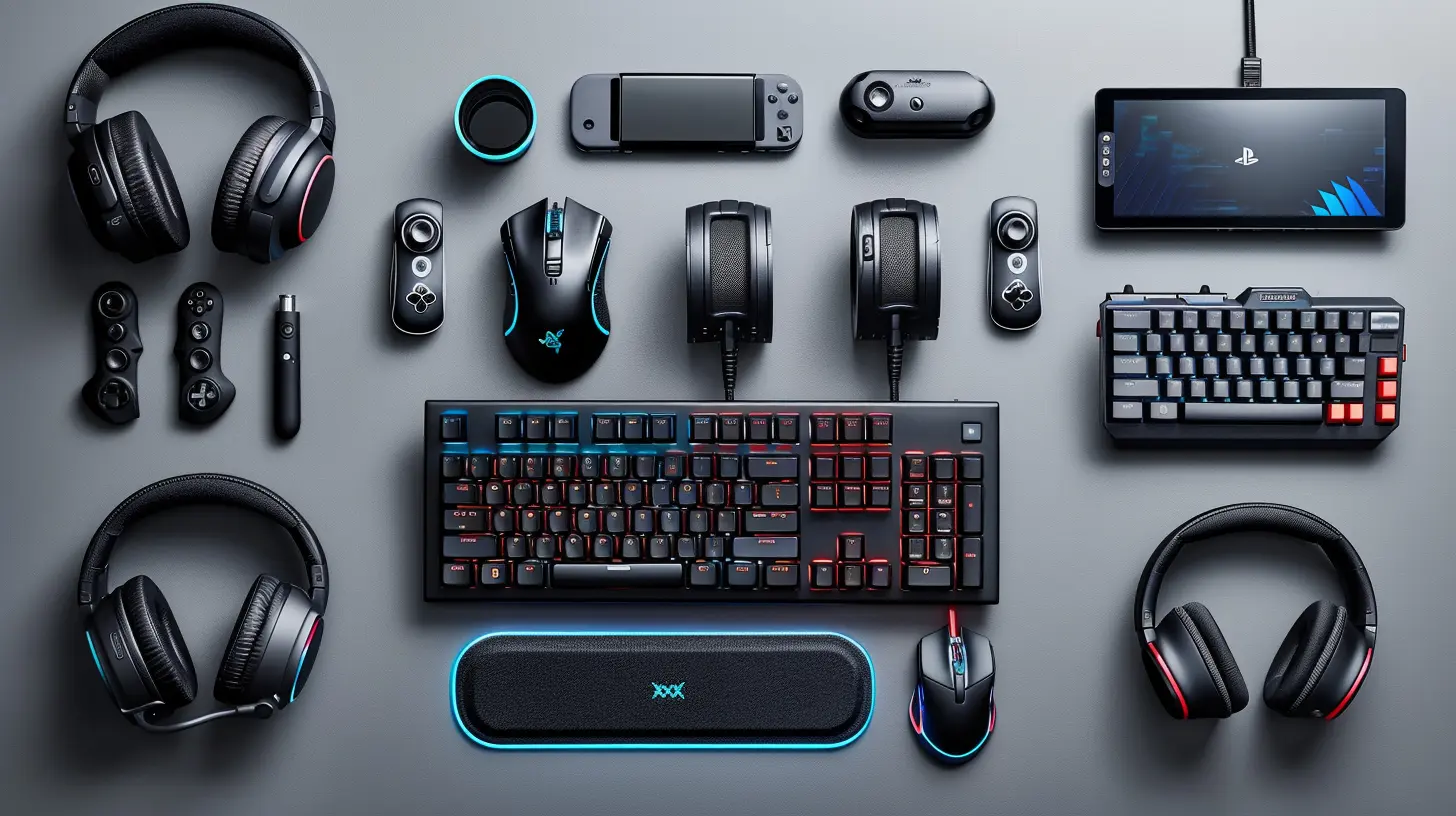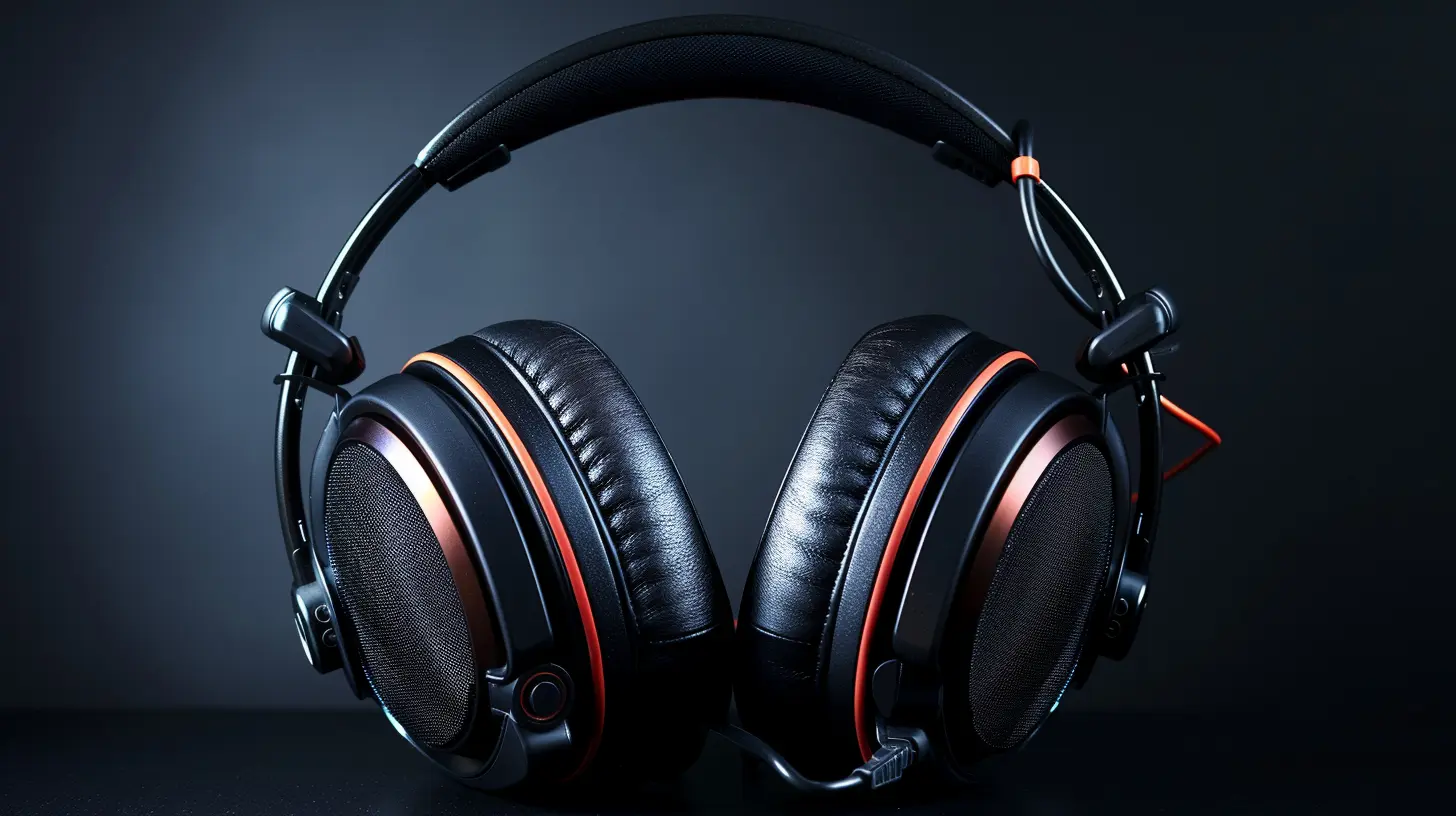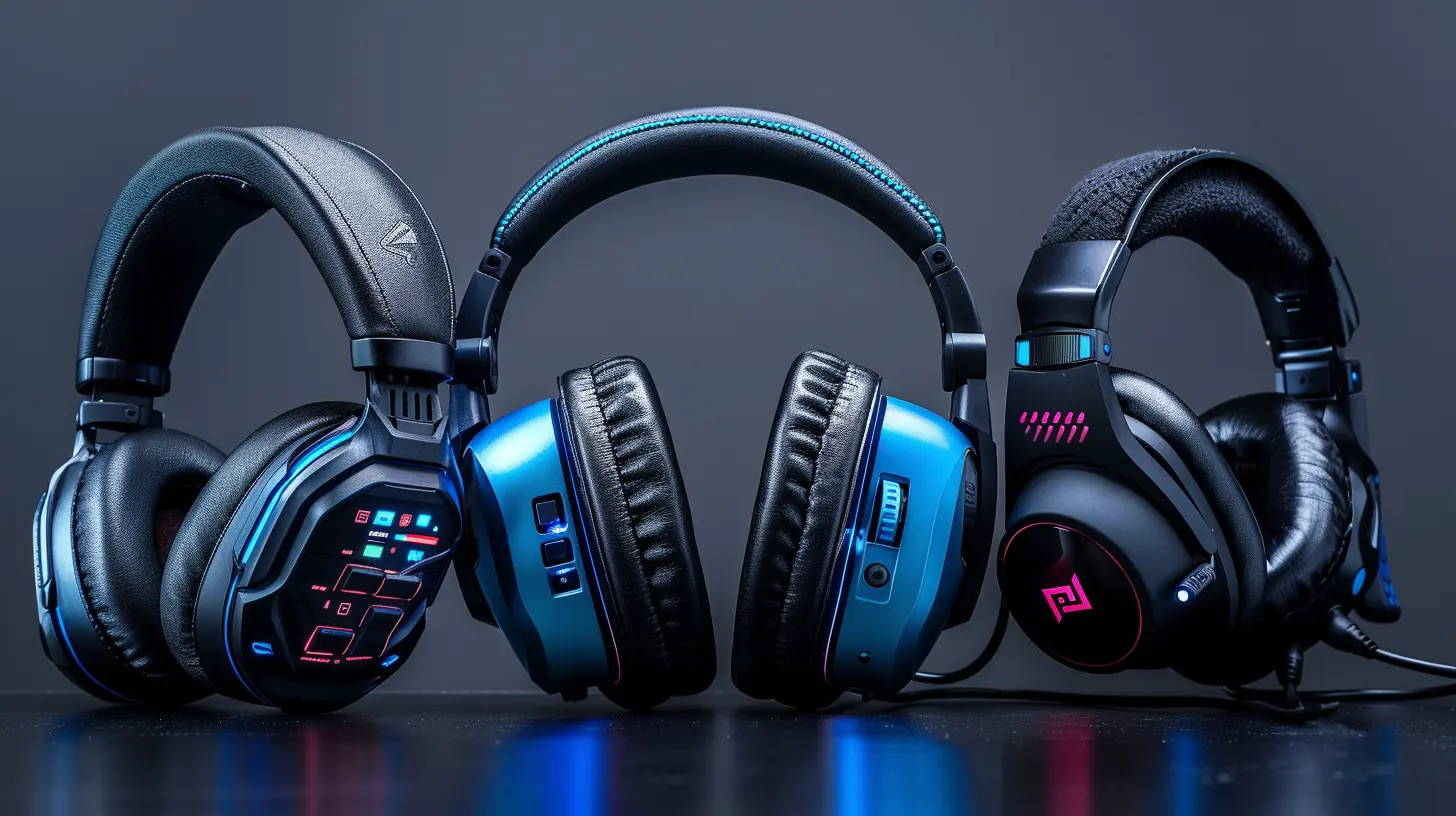Choosing the Perfect Gaming Headset: What to Consider
8 June 2025
Let’s be real—gaming without a proper headset is like trying to win a race with one shoe. You might still make it to the finish line, but it won’t be pretty. Whether you're grinding ranked matches in Call of Duty, exploring rich storylines in The Last of Us, or just vibing out in co-op chaos, the right headset can make or break your gaming experience.
But here’s the tricky part: with so many brands, specs, and features thrown around like power-ups in a battle royale, how do you even begin picking the perfect gaming headset? Chill, I got you. In this guide, we’re diving deep into what really matters when it comes to choosing your next gaming headset. So plug in, gear up, and let’s break it down.
🎧 Why Your Headset Matters More Than You Think
Before we get into the nitty-gritty, let’s answer the big question: Why bother with a gaming headset at all?Imagine playing your favorite shooter. You hear footsteps behind you—BAM, you react just in time and take out an enemy. That audio cue? That’s your headset doing the heavy lifting. Great sound can mean the difference between fragging the enemy or ending up on the respawn screen. It’s not just about audio, though. Comfort, mic clarity, wireless freedom—these things matter a lot during long gaming sessions.
Simply put: a great headset amplifies immersion, coordination, and comfort. It’s the bridge between you and your game world.
🧠 Sound Quality: The Heart of Every Gaming Headset
This one’s a no-brainer, right? You’re buying a headset—of course audio quality is key. But what exactly should you be listening for?🔊 Surround Sound vs. Stereo
Gaming headsets typically offer either stereo or virtual surround sound.- Stereo: Left and right audio only. Great for music, most games, and simplicity.
- Virtual Surround Sound: Simulates multiple directional sound cues, like 7.1 channels. Perfect for competitive shooters where hearing direction matters. Think “he’s behind you!” but with no one having to say it.
If you're into competitive games like Apex Legends, Valorant, or Rainbow Six Siege, go for virtual surround. But for casual gaming or single-player epics like Red Dead Redemption 2, stereo might just do the trick.
🎶 Drivers Matter
The driver is the part of the headset that produces sound. Bigger is often better—but not always.- 50mm drivers: Common in high-end headsets. More powerful sound.
- Smaller drivers: Can still sound good if well-tuned, but might lack depth.
Want that satisfying boom when a grenade goes off near you? Pay attention to those drivers.
🎙️ Microphone Quality: Communication Is Key
Let’s not forget multiplayer gaming is a team sport. Whether you’re cracking jokes or calling out enemy locations, your voice has to come through loud and clear.🎤 Noise-Canceling Mics
Many headsets offer noise-canceling mics that block out background noise. Super useful if you're gaming in a noisy home or next to a fan (or a yelling sibling).Detachable or flip-up mics are also nice if you switch between using your headset for games and music or movies.
Just make sure your squad hears your strategic genius and not your keyboard smashing, yeah?
🕹️ Wired vs. Wireless: The Big Debate
This one’s a personal choice, but let’s weigh the pros and cons.🔌 Wired Headsets
- Pros: No latency, no battery issues, generally cheaper.- Cons: Tethered to your device. Can be limiting.
Perfect for stationary setups and when sound delay is a no-go.
📡 Wireless Headsets
- Pros: Freedom to move around, more modern, cleaner setup.- Cons: Potential latency, needs charging, pricier.
Modern wireless headsets have improved a lot though. Top-tier ones have near-zero latency and long battery lives. If you hate cords (who doesn’t?), go wireless.
💺 Comfort and Build: Your Ears Will Thank You
A headset isn’t worth much if it starts hurting your head after 30 minutes.🤕 Weight and Padding
Look for a lightweight headset with memory foam or soft padding on the ear cups and headband. Clamping force is important too—too tight and you’ll feel like your skull’s in a vice; too loose and the headset slips off when you tilt your head.⚙️ Adjustability
Everyone’s noggin is different. A headset that adjusts to fit your head snugly without pressure points is worth its weight in gold (well, maybe not gold, but you get it).Pro tip: If you wear glasses, make sure the headset is glasses-friendly. Some even advertise this as a feature.
🌈 Design & Aesthetics: Look Good While You Play
While performance is king, let’s be honest—we all dream of that sleek, RGB-blasted headset that makes our setup look sick.- RGB Lighting: Totally optional but kinda fun.
- Detachable Parts: Swappable cables, ear cushions, and mics mean you can customize and replace parts easily.
- Minimalist vs. Gamer Look: Some headsets scream “gamer!” while others could pass for studio headphones. Pick your flavor.
You’ve got options whether you’re all about that LED life or prefer your gear to whisper class.
🔌 Platform Compatibility: Don’t Get Caught Slippin’
Here’s the part too many folks forget: Will this headset even work with your setup?🖥️ PC Gamers
Most headsets will work fine, especially those with 3.5mm jacks or USB connections.🎮 Console Players
This is where it gets tricky. Xbox and PlayStation don’t always play nice with the same gear.- Xbox: Generally needs headsets that support Xbox Wireless or connect via the controller.
- PlayStation: More accepting of USB and 3.5mm connections.
Always check what platform a headset supports before you buy. Some models are plug-and-play across everything; others, not so much.
🔋 Battery Life (For Wireless Sets): Don’t Die Mid-Match
Wireless headsets need juice. Imagine this: final round, you’re the last one alive—and your headset dies. Pain.Look for at least 15+ hours of battery life. Some high-end models go beyond 30. Bonus points if the headset supports fast charging or works while charging.
🧰 Extra Features That Actually Matter
Some add-ons may sound flashy, but a few of them really improve your experience.- On-Ear Controls: Quick volume and mute controls are super convenient mid-game.
- Software Customization: EQ settings, mic monitoring, chat/game mix—these make a difference.
- Bluetooth Dual Connectivity: Take a call while still gaming? Yes, please.
Think of these as the extra frosting on an already killer cake.
💰 Price vs. Performance: What’s the Sweet Spot?
Gaming headsets range from $30 to over $300. Is more expensive always better? Not necessarily.💸 Budget ($30–$70)
- Solid sound- Basic comfort
- Wired
- May lack premium features
Great for casual gamers or as a backup set.
💥 Mid-Range ($80–$150)
- Balanced performance- Good mic
- Wireless options available
- Durable builds
This is the sweet spot for most gamers.
🏆 Premium ($150+)
- High-end audio drivers- Exceptional comfort
- Feature-rich
- Often used by pros or streamers
Worth it if you game a lot and want top-tier everything.
🧪 Real-World Testing: Don’t Just Trust the Specs
You can read all the specs and marketing fluff in the world, but nothing beats real-world usage. If you can, test the headset at a store. Or check out YouTube reviews where creators use them in live settings.Pay attention to:
- Mic quality in real calls
- Comfort over hours
- Sound clarity in actual games
Because hey, numbers don’t always capture the full story.
🛍️ Brands to Watch
Some brands consistently kill it in the headset game. These include:- SteelSeries
- HyperX
- Razer
- Logitech G
- Corsair
- Astro
- Turtle Beach
Each has its strengths—some are better known for comfort, others for sound or style. It’s worth browsing their latest lines and comparing.
🙌 Final Thoughts: Make Your Choice With Confidence
So, what’s the takeaway?Choosing the perfect gaming headset isn’t just about what looks cool or what’s trending. It’s about what fits your gaming style, platform, budget, and ears. Ask yourself:
- Do you prioritize competitive gaming? Go surround sound.
- Hate wires? Wireless is the way.
- Want all-day comfort? Focus on padding and build.
- Multiplayer fiend? Invest in a crystal-clear mic.
There’s no one-size-fits-all answer. But armed with this info, you can make a smart decision and level up your gaming setup like a true pro.
So go ahead—treat your ears. They deserve it.
all images in this post were generated using AI tools
Category:
Gaming GearAuthor:

Stephanie Abbott
Discussion
rate this article
3 comments
Zailyn Taylor
Stop settling for mediocre audio! Your gaming experience deserves top-notch sound and comfort. Invest wisely—don’t let subpar gear hold back your performance. Elevate your game; you won’t regret it!
June 17, 2025 at 3:33 PM

Stephanie Abbott
Absolutely! Quality audio enhances immersion and performance. Choosing the right headset is essential for an optimal gaming experience.
Fennec Carey
Great article! Choosing the right gaming headset can truly enhance the experience. Your insights on sound quality, comfort, and features are invaluable. Looking forward to more tips for us avid gamers!
June 14, 2025 at 5:16 AM

Stephanie Abbott
Thank you for your kind words! I'm glad you found the tips helpful. Stay tuned for more insights tailored for gamers!
Jessica McDowney
Unlock immersive experiences with the right headset—your gaming adventures deserve the best sound!
June 11, 2025 at 4:48 PM

Stephanie Abbott
Absolutely! A high-quality headset can elevate your gaming experience by providing immersive sound and comfort. It's crucial to choose one that fits your gaming style and needs.



